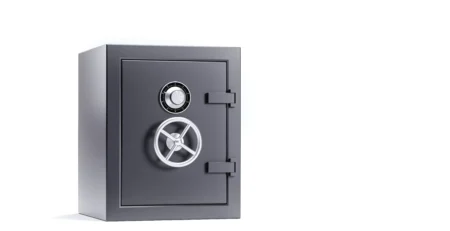Introduction
hardmoney lenders are often utilized by individuals and businesses that are unable to secure traditional bank loans. These lenders are typically private investors or companies that specialize in providing short-term loans to borrowers who have assets that can serve as collateral. While hardmoney loans offer certain advantages over traditional loans, these loans also come with several drawbacks. In this article, we will explore the pros and cons of hardmoney lenders and help you determine whether this type of financing is right for you.
Pros of HardMoney Lenders
1. Quick Funding
One of the major benefits of working with a hardmoney lender is the speed at which you can secure funding. Traditional lenders may take weeks or even months to approve a loan application and disburse funds. hardmoney lenders can often approve and fund a loan quickly. This is in contrast to traditional lenders, who may take days or even weeks to process a loan. hardmoney lenders can often provide the funds within a few days or even hours. This speed can be crucial for borrowers who need financing quickly. Such as those looking to purchase a distressed property or take advantage of a market opportunity. Time is of the essence in these cases, and a fast loan process can make all the difference.
2. Flexible Qualification Requirements
While traditional lenders often require extensive documentation and a high credit score to approve a loan, hardmoney lenders have different criteria. They are typically more flexible in their qualification requirements. These lenders are primarily concerned with the value of the collateral used to secure the loan. Examples of collateral include real estate or a valuable asset. hardmoney lenders may be willing to approve a loan even if the borrower has a low credit score or limited income. This is as long as the collateral is sufficient to cover the loan amount.
3. Asset-Based Loans
hardmoney lenders generally provide asset-based loans, which means that the loan is secured by collateral rather than the borrower’s creditworthiness. This allows borrowers to obtain funding even if they have poor credit or other financial problems. In addition, borrowers may be able to secure larger loans or better terms by using valuable assets to secure the loan.
4. Lower Qualification Standards
Another benefit of working with a hardmoney lender is that the qualification standards are often lower than those of traditional lenders. This means that borrowers who may not qualify for a traditional bank loan may be able to obtain financing through a hardmoney lender. This can be especially helpful for borrowers who have a poor credit score, limited income, or a lack of collateral.
5. More Flexibility
Finally, hardmoney lenders are often more flexible in their lending terms than traditional lenders. This means that borrowers may be able to negotiate more favorable terms for their loan, such as longer repayment periods or lower interest rates. In addition, borrowers may be able to obtain financing for projects or properties that traditional lenders may consider too risky or unconventional.
Cons of hardmoney Lenders
1. High Costs
One major drawback of working with a hardmoney lender is the high cost of borrowing. Because hardmoney loans are typically short-term loans, the interest rates are often much higher than those of traditional bank loans. In addition, hardmoney lenders may charge additional fees, such as origination fees, processing fees, or early repayment fees. These factors can significantly increase the overall cost of borrowing, making hardmoney loans less attractive for some borrowers.
2. Short Repayment Terms
Another disadvantage of hardmoney loans is the short repayment terms. These loans are designed to be short-term solutions, which means that the borrower must repay the loan within a few months to a few years. This can put a significant burden on borrowers, especially if they are unable to make the required payments. In addition, the short repayment terms can make it difficult for borrowers to take advantage of market opportunities or make long-term investments.
3. Risk of Foreclosure
Because hardmoney loans are secured by collateral, borrowers run the risk of losing their assets if they are unable to repay the loan. This can include the loss of a home, property, or other valuable assets. In addition, hardmoney lenders may be less willing to work with borrowers who are experiencing financial difficulties or struggling to make payments. This can make it difficult for borrowers to avoid foreclosure in the event of financial hardship.
4. Limited Availability
Finally, hardmoney lenders are not as widely available as traditional bank loans. These lenders typically operate in niche markets and may only be available to borrowers who meet certain qualification criteria. In addition, many hardmoney lenders specialize in specific industries or types of assets, such as real estate or business financing. This can make it difficult for borrowers to find a lender who is willing to provide financing for their specific needs.
FAQs
1. What is a hardmoney loan?
A hardmoney loan is a short-term loan that is secured by collateral, such as real estate or other valuable assets. These loans are typically provided by private investors or companies and are designed to be used for short-term financing needs.
2. What are the qualification requirements for a hardmoney loan?
The primary qualification requirement for a hardmoney loan is sufficient collateral to secure the loan. hardmoney lenders may also consider other factors, such as the borrower’s credit score, income, and experience in the industry.
3. How long does it take to secure funding through a hardmoney lender?
Most hardmoney lenders can approve and fund a loan within a few days to a few weeks, depending on the complexity of the loan and the availability of collateral.
4. What are the repayment terms for a hardmoney loan?
hardmoney loans are typically short-term loans that must be repaid within a few months to a few years. The repayment terms may vary based on the lender, the size of the loan, and the collateral used to secure the loan.
5. Are hardmoney loans more expensive than traditional bank loans?
Yes, hardmoney loans typically have higher interest rates and fees than traditional bank loans. This is due to the risk involved in lending to borrowers with poor credit or limited collateral. However, hardmoney loans may be the only option for borrowers who are unable to secure traditional bank financing.
Conclusion
In conclusion, hardmoney lenders offer several benefits over traditional bank loans, including quick funding, flexible qualification requirements, and asset-based financing. However, these loans also come with several drawbacks, such as high costs, short repayment terms, and the risk of foreclosure. Whether a hardmoney loan is right for you will depend on your specific financing needs, as well as your ability to repay the loan within the required terms. By understanding the pros and cons of working with a hardmoney lender, you can make an informed decision about your financing options and secure the funding you need to achieve your goals.












Leave a Reply